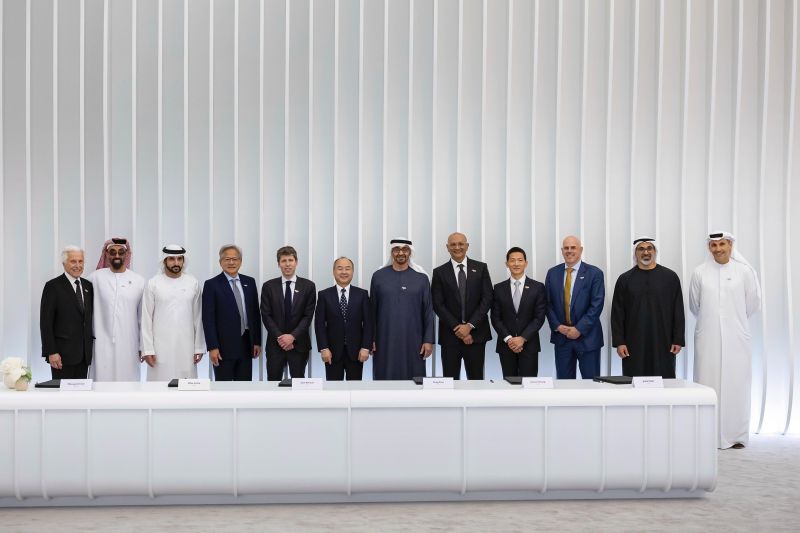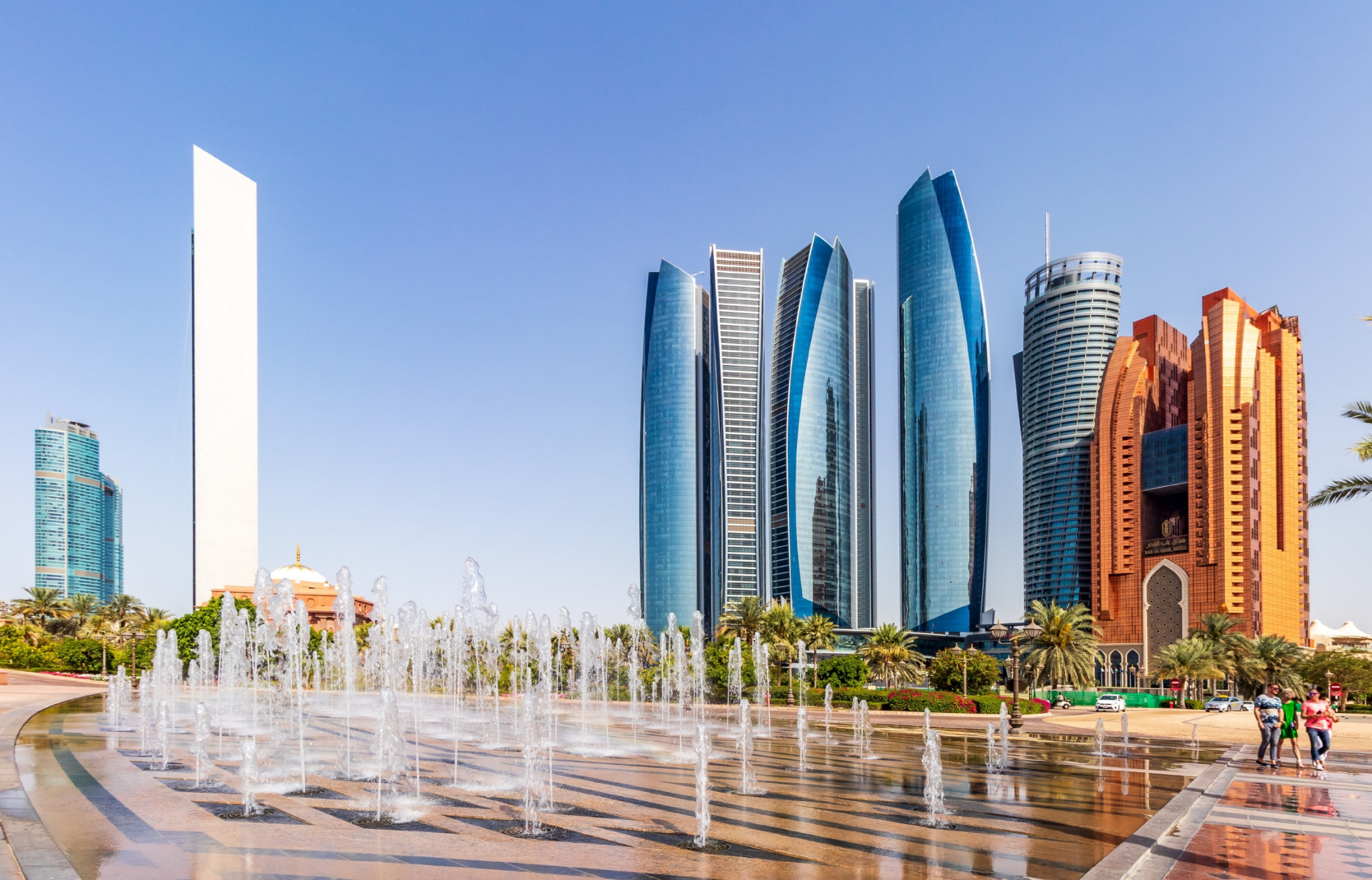The recent launch of a 5GW UAE-US AI Campus in Abu Dhabi is shining the spotlight on the capital city of the United Arab Emirates (UAE), that has hitherto always been a step behind its more glamorous sister Dubai, the reigning queen of the data center market in the Middle East. But with Stargate UAE’s launch, and the announcement that it will run from the UAE-UA AI Campus, perhaps Abu Dhabi is finally ready for its own spot in the sun.
It is noteworthy that Stargate UAE, a 1GW compute cluster, will be built by G42 and operated by OpenAI and Oracle. The collaboration will also include Cisco, offering its zero-trust security and AI-ready connectivity, and SoftBank Group, as well as NVIDIA which will supply the latest NVIDIA Grace Blackwell GB300 systems. With so many global technology giants taking interest, it is only a matter of time before Abu Dhabi begins to shine brighter.
What Abu Dhabi overtake Dubai as top DC market in the UAE?
According to Mordor Intelligence, Dubai stands as the powerhouse of the UAE’s data centers in UAE market, commanding approximately 50 percent of the country’s total IT load capacity in 2024. The emirate’s dominance is driven by its position as a growing knowledge-based economy hub, attracting young millennials through numerous reforms, including the Golden Visa program and robust digital infrastructure development.
However, Abu Dhabi is leveraging its robust infrastructure and strategic position as the UAE’s capital. The emirate’s Abu Dhabi data center landscape benefits significantly from its substantial economic foundation, with Abu Dhabi contributing about two-thirds of the UAE’s US$ 400 billion economy. Moreover, the UAE government is digitizing rapidly, and this will undoubtably play a huge role in the growth of the digital infrastructure industry.
Readers would recall that in March this year, Abu Dhabi announced a significant agreement with Microsoft and Core42 to implement a sovereign cloud system to increase efficiency and innovation in the provision of government services. The agreement will create a unified, high-performance cloud computing environment capable of processing more than half a million daily digital interactions between Abu Dhabi government entities, citizens, residents, and businesses.
Abu Dhabi aims to automate 100 percent of its government processes, supported by AED 13 billion investment in digital infrastructure through the Abu Dhabi Government Digital Strategy 2025-2027. The Strategy will see amongst many things, over 200 AI-driven solutions deployed to improve public service delivery, boost operational productivity, and contribute to environmental sustainability.
But will this demand from the government, which is perhaps the largest generator and user of data, be enough to propel Abu Dhabi’s data center industry to the top position?
Equinix, Gulf Data Hub (GDH), Khazna Data Centers, G42, Du and Etisalat, all have data centers here, and many big national and multinational digital infrastructure companies are also expanding their presence in Abu Dhabi.
In April 2025, Khazna Data Centers, a homegrown provider of hyperscale wholesale data centers, broke ground on two brand new facilities in the United Arab Emirates (UAE). AUH4 in Mafraq and AUH8 in Masdar City – both in Abu Dhabi – will provide a combined 60MW of capacity. They are due for completion in December 2026 and August 2026 respectively.
International player Pure Data Centres also announced the opening of its first project that is going live in the Middle East. The AUH01 data center is located on Yas Island in Abu Dhabi, and supports the deployment of hyperscale infrastructure in the region, reducing latency and capable of hosting cloud and Artificial Intelligence (AI) workloads. At present, it has over 45MW either deployed or under development.

Abu Dhabi to dominate the future DC landscape
A series of reports by industry watchers and research firms predicted Abu Dhabi’s growth in the months preceding the actual announcement of the Stargate project and the UAE-US AI Campus.
A March 2025 report by Research and Markets titled UAE Existing & Upcoming Data Center Portfolio finds that the existing data center capacity in UAE is over 250MW, while the upcoming capacity in the region is expected to be around 500MW. Of this, almost 150MW of additional power capacity is expected to be added by the end of 2025. The report further predicts that around US$ 1.5 billion in new investments is expected to flow into upcoming data centers in UAE by 2027. Interestingly, the report finds that Abu Dhabi dominates the upcoming data center market with almost 40 percent of the total power capacity.
According to another report from the same research firm, titled United Arab Emirates Data Center Market – Investment Analysis & Growth Opportunities 2025-2030 the UAE data center market was valued at US$ 1.26 billion in 2024, and is expected to reach US$ 3.33 billion by 2030, rising at a Compounded Average Growth Rate (CAGR) of 17.58 percent. However, it notes that while it has 35 existing colocation data centers spread across the country, most of them are in Dubai.
The findings of a report by Arizton Intelligence are also similar, expecting 24 new data centers to come up in the UAE by 2030. The report titled United Arab Emirates Data Center Market – Investment Analysis & Growth 2025-2030, says that the significant growth of the UAE data center market can be attributed to the rapidly evolving cloud computing landscape, ongoing digital transformation initiatives, and the strategic geographic location of the UAE as a connectivity hub between Asia, Africa, and Europe. It further acknowledges that Dubai and Abu Dhabi are two of the major smart cities in the country and internationally.
Abu Dhabi’s growth had also caught the attention of other industry watchers. In its Global Data Centers Report 2025, Knight Frank named Abu Dhabi as a Momentum Market. It noted that Abu Dhabi was “a stronghold for Microsoft with an investment of US$ 1.5 billion in G42 to accelerate AI development, positioning the UAE as a key player in the global AI and cloud computing sectors.” It further noted that “Oracle is also making major moves, a significant move to boost its presence in Abu Dhabi, planning to increase its investment five-fold to meet the rising demand for cloud and AI solutions in the UAE.” Meanwhile AWS and Khazna Data Centers already have a huge presence in Abu Dhabi.
Knight Frank also highlights how AI is drawing investments that are all poised to turn Abu Dhabi into one of the most preferred data center destinations. BlackRock, Microsoft, and Abu Dhabi backed MGX have established a US$ 100 billion investment fund, named the AI Infrastructure Partnership (AIP) focused on enhancing artificial intelligence infrastructure, with advisory support provided by Nvidia.
Conclusion
If we look at Johor, that has now carved a niche for itself as an AI hub, and is no longer dependent on the spillover from Singapore, we can perhaps expect a similar trajectory for Abu Dhabi. Even Chennai is poised to give Mumbai a serious run for its money. Guess friendly rivalry has its advantages, the rest comes from a favourable regulatory environment and robust connectivity ecosystem.



